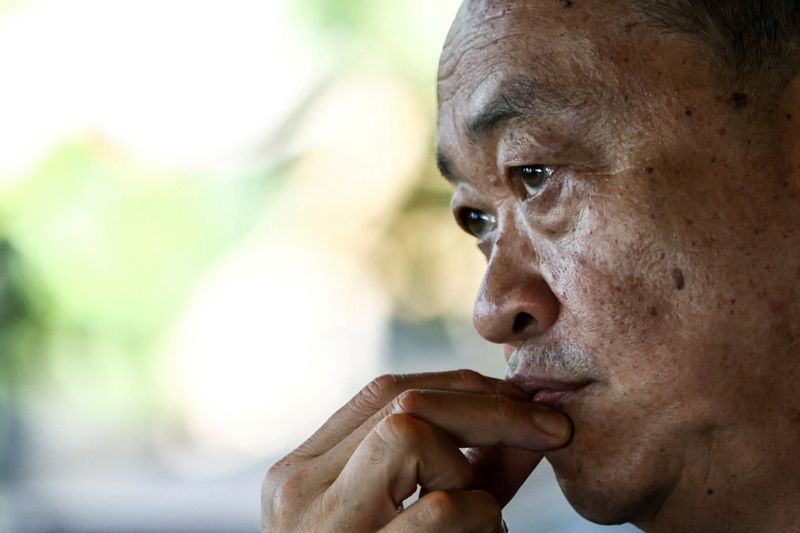By Orathai Sriring and Panu Wongcha-um
BANGKOK (Reuters) - Three court cases in Thailand, including one that has ensnared the prime minister, have heightened political uncertainty in Southeast Asia's second largest economy and sent investors fleeing its stock market.
The Constitutional Court on Wednesday will take up a case that could potentially dissolve the progressive political party that won last year's closely contested general election, besides considering another that could lead to the dismissal of Prime Minister Srettha Thavisin.
In another case next week, influential former Prime Minister Thaksin Shinawatra will be formally indicted for allegedly insulting the monarchy.
The outcome of the cases could leave Thai politics in disarray, raising tensions between the powerful conservative, royalist camp and their rivals - a pattern that has dogged the political landscape for decades, said analyst Thitinan Pongsudhirak.
"They can keep (people) out and kick out office holders. But they cannot take office themselves because they cannot win the election," said Thitinan, who teaches at Bangkok's Chulalongkorn University, referring to the conservative establishment
"I think certainly we're seeing another round of turmoil."
The looming politically charges cases sent Thailand's main stock index down to its lowest level in 3-1/2 years on Monday. The bourse has fallen 6.9% so far this year, making it Asia's worst performing market.
Deputy Finance Minister Paopoom Rojanasakul told reporters on Tuesday the market decline reflected the country's "not good" economy.
'WORST CASE SCENARIO'
The case against Srettha took hold following a complaint by 40 military-appointed senators in May alleging that the prime minister alleged he breached the constitution while making a cabinet appointment.
The constitutional court subsequently accepted the complaint but has not announced a schedule for its proceedings on this case.
"Prime Minister Srettha's case will have the greatest impact because, in a worst-case scenario, if he loses his position, a new prime minister must be chosen and a new cabinet must be formed, which would take at least two months," said Apichat Poobunjirdkul, senior strategist at TISCO Securities.
On Wednesday, the Constitutional Court will deliberate on a case seeking the dissolution of the opposition Move Forward Party, which controls around 30% of seats in the lower house after winning last year's election.
The Election Commission in early April filed a complaint seeking to disband Move Forward for its controversial campaign to reform the strict lese majeste law.
In January, the same court ruled that the party's plans to change the law was a hidden effort to undermine the monarchy.
The law carries a punishment of up to 15 years jail for each perceived insult of the royal family, and has been applied to prosecute over 270 people since 2020, according to legal aid group Thai Lawyers for Human Rights.
The court has not set a verdict date for the case.
Meanwhile, former premier Shinawatra - who returned to Thailand last August after 15 years of self-imposed exile - will be formally indicted for lese majeste and computer crimes next week.

Thaksin is the force behind the populist ruling Pheu Thai party and his family's parties have won all but one election since 2001, with three Shinawatra-backed governments toppled by coups or court rulings.
"The petition to remove Prime Minister Srettha on 23 May, which was soon followed by the indictment of ex-PM Thaksin on 29 May, raises concerns over the stability of the Pheu Thai-led government," Nomura said a recent report.